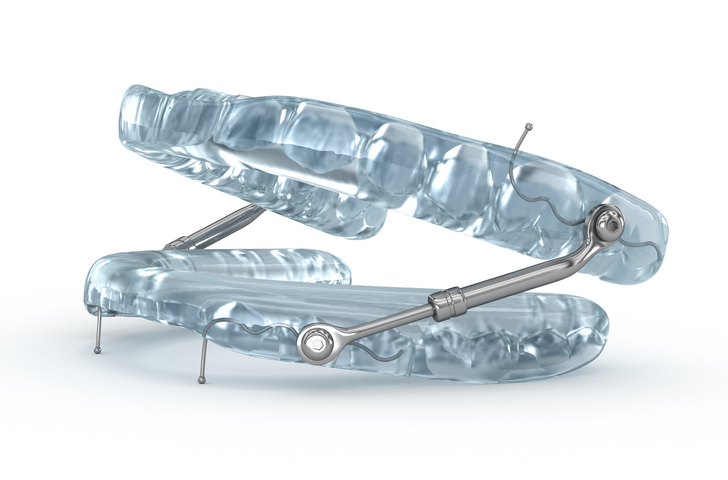Personalized Sleep Apnea Treatments: Beyond Traditional CPAP Machines

If you’ve been diagnosed with sleep apnea or suspect you might have it, you’re not alone—and you’re not without options. While many patients are familiar with CPAP (Continuous Positive Airway Pressure) therapy, it’s far from the only path to better sleep and improved health. At Gateway Center for Sleep Apnea & TMJ Therapy, our team offers personalized treatment options designed to fit your unique needs, comfort level, and lifestyle.
Let’s explore what sleep apnea is, why CPAP may not be the right fit for everyone, and the alternative approaches that may help you breathe easier at night.
Understanding Sleep Apnea and Its Impact on Daily Life
Sleep apnea is a common but serious sleep disorder in which breathing repeatedly stops and starts during sleep. The most prevalent form—obstructive sleep apnea (OSA)—occurs when the muscles in the throat relax too much, causing a temporary blockage of the airway.
Common Symptoms of Sleep Apnea Include:
- Loud snoring
- Gasping or choking during sleep
- Waking up feeling tired despite a full night’s rest
- Morning headaches
- Difficulty concentrating during the day
- Mood changes or irritability
- Dry mouth or sore throat upon waking
When left untreated, sleep apnea can do more than disrupt your sleep. It has been linked to several serious health conditions, including:
- High blood pressure
- Heart disease
- Stroke
- Type 2 diabetes
- Weight gain
- Increased risk of motor vehicle accidents due to drowsiness
CPAP machines are often the go-to treatment, delivering continuous air pressure through a mask to keep airways open. But for many patients, this approach can feel overwhelming, uncomfortable, or simply unsustainable in the long term.
Why CPAP Isn’t Always the Right Fit
While CPAP therapy is effective for many patients, it’s not a one-size-fits-all solution. Some patients stop using their machines altogether due to discomfort or frustration.
Common CPAP Challenges Include:
- Difficulty adjusting to wearing a mask every night
- Feelings of claustrophobia
- Dry or irritated nasal passages
- Air leaks around the mask
- Noise that disrupts sleep
- Trouble maintaining compliance
These barriers often lead to inconsistent use, reducing the effectiveness of treatment and leaving sleep apnea symptoms unresolved.
That’s why it’s essential to explore alternative treatments with a professional who understands the full spectrum of options available. A personalized approach can make a world of difference in both treatment success and quality of life.
Exploring Non-CPAP Alternatives for Sleep Apnea
For patients seeking a more comfortable or discreet alternative to CPAP, several effective options are available. At Gateway Center for Sleep Apnea & TMJ Therapy, we’re here to help identify which solution may work best for you.
Oral Appliance Therapy
One of the most promising non-CPAP treatments is oral appliance therapy. These custom-made devices are worn during sleep and work by gently repositioning the lower jaw and tongue to keep the airway open.
Oral appliances are:
- Comfortable and easy to wear
- Quiet and non-invasive
- Portable and travel-friendly
- Easy to maintain
They’re especially effective for patients with mild to moderate obstructive sleep apnea or those who have trouble tolerating CPAP.
Lifestyle Modifications
Sometimes, small changes can have a big impact. For some patients, combining treatment with certain lifestyle habits can improve results and reduce sleep apnea severity.
Helpful adjustments may include:
- Managing weight through diet and exercise
- Sleeping on your side instead of your back
- Avoiding alcohol and sedatives before bed
- Practicing good sleep hygiene (consistent bedtime, screen-free wind-down, etc.)
Surgical Options
In more severe or unresponsive cases, surgery may be considered to address structural issues contributing to airway obstruction. While this isn’t the first choice for most patients, it’s an option worth discussing with a professional when other treatments aren’t successful.
The Role of TMJ Health in Sleep Apnea Treatment
An often-overlooked contributor to sleep apnea is the health and alignment of the temporomandibular joint (TMJ)—the hinge that connects your jaw to your skull. When the TMJ is misaligned or under strain, it can impact the position of the jaw and tongue, narrowing the airway during sleep.
How TMJ Disorders Affect Sleep:
- A tight or unstable jaw joint can shift the lower jaw backward
- Tongue position may be altered, leading to airway obstruction
- Clenching and grinding (common in TMJ disorders) can worsen airway tension
For some patients, treating TMJ dysfunction is key to improving breathing at night. At Gateway Center for Sleep Apnea & TMJ Therapy, we take a comprehensive approach to your health. By assessing both airway function and jaw alignment, we can design a treatment plan that addresses the root causes of your sleep disruption.
What is Neuromuscular Dentistry?
Neuromuscular dentistry focuses on the alignment of your jaw, muscles, and airway. Through advanced diagnostics and imaging, we determine the ideal jaw position that supports proper breathing and comfort. Custom oral appliances can then be created to maintain this optimal position during sleep.
Taking the Next Step: A Personalized Approach to Better Sleep
Sleep apnea doesn’t have to control your nights—or your days. Whether you’re newly diagnosed or have been struggling with your current treatment, there are effective options available beyond the traditional CPAP machine.
Our team, led by Dr. Kevin F. Postol, is dedicated to helping you find the right solution through a personalized evaluation and treatment plan. Every patient is unique, and your care should be too.
If you’re ready to take the next step toward healthier sleep and improved well-being, we invite you to schedule a consultation with our team. Let’s work together to explore treatments that fit your lifestyle, comfort level, and health goals.
You deserve restful nights and energized days—and we’re here to help you get there.

